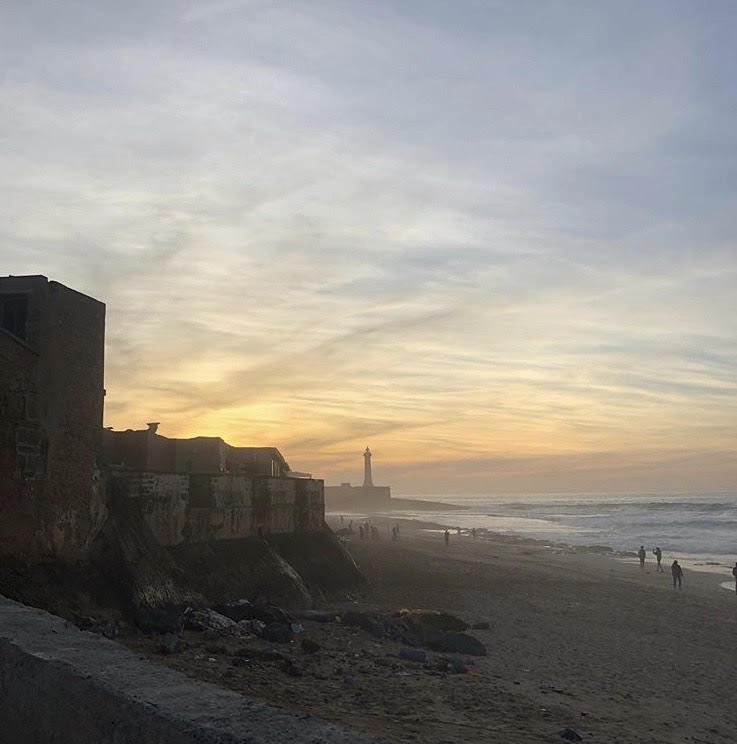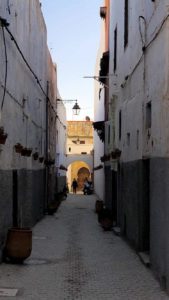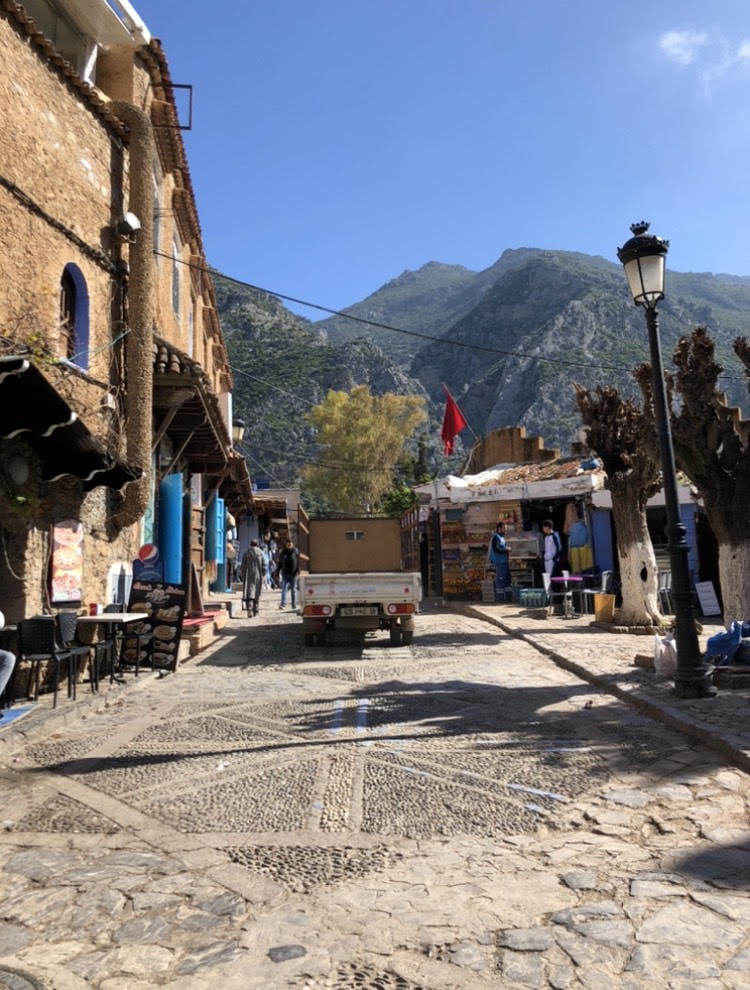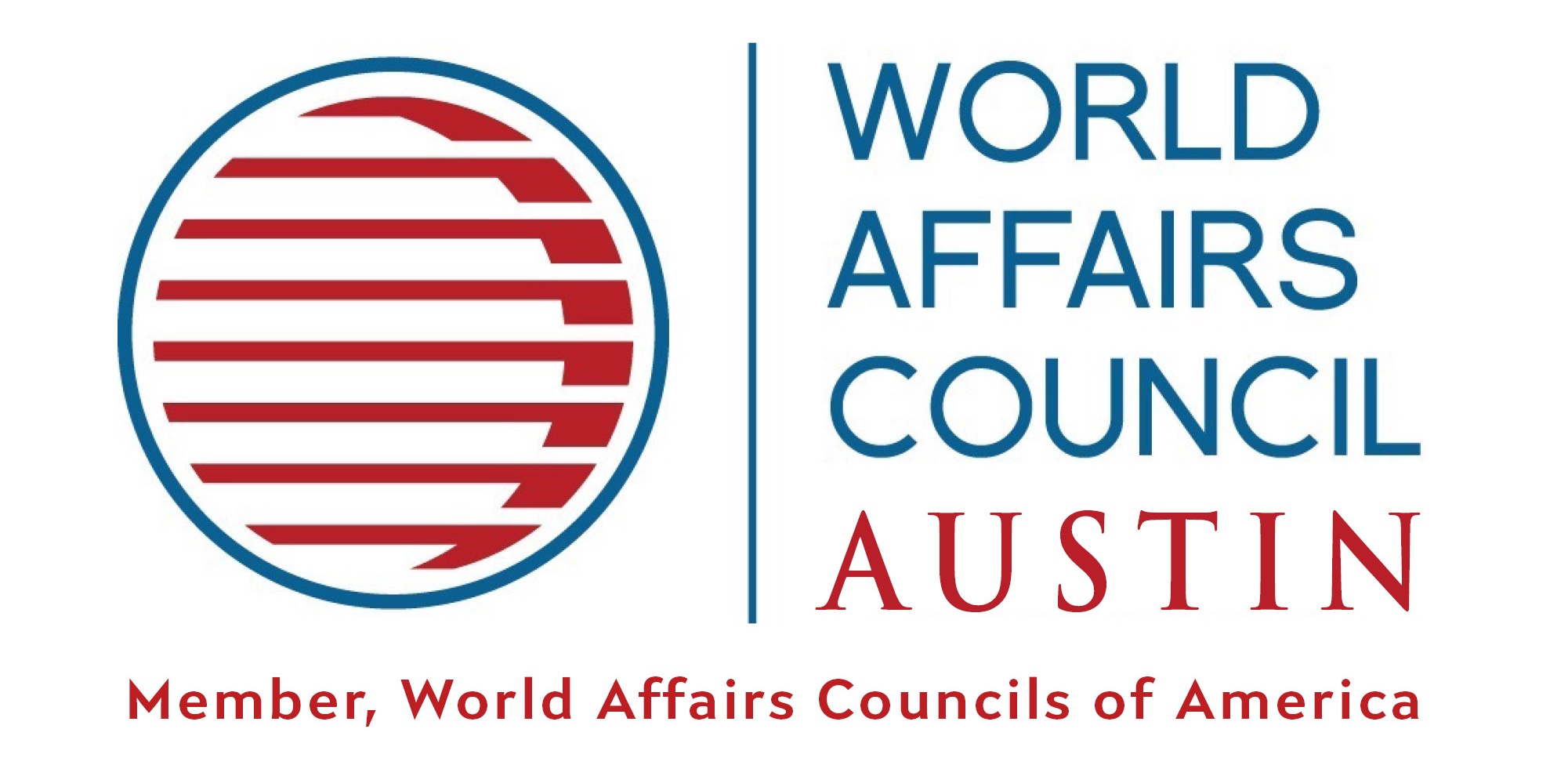Memories of Morocco
By Mahalet Kefyalew

For the first half of my Spring 2020 semester, I studied Migration and Transnational Identity in the capital of Morocco, Rabat. It is a coastal city, so you can spot the Atlantic from any terrace in the city. The water gleams, even on the dullest and greyest of days. The city is small, quaint, but big enough to get lost in. If you walk the city even just for one day, you’ll notice, when people speak, their Darija blends with French. You’ll notice the physical transitions between the Medina, and the New city.
You’ll notice how your train of thought wanders differently.

My time in Morocco, has made me reflect on the ethics of travel, tourism and globalization. As I traveled through and explored the beautiful cities of Morocco, I began to notice that the degree to which tourism promotes an affinity with authenticity and tradition. This largely affects how preservation of culture manifests in communities throughout Morocco . Curiosity and admiration for cultural differences undoubtedly creates bonds between individuals and communities living worlds away. However, there is a fine line between admiration and fetishization. Culture is not merely an aesthetic , and often times the weight and history of a county’s tradition and culture can be distorted and overlooked when we choose to experience traditions and cultures as a means for entertainment.
As a globalist, my perceptions of travel drastically changed during my time in Morocco. This country is home to those native to Morocco as well as those who are traveling to it. To any eye, this county is filled with heart and beauty. However as a traveler, I must understand that I experienced the beauty that Morocco has to offer from a point of privilege.
When we embark on the adventures and travels inspired by our globalist ideals, we must ask ourselves, how does my presence effect the places I want to explore?

